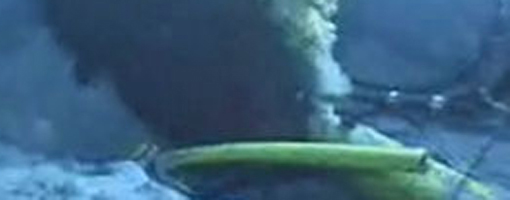Deepwater: lessons to learn from the BP spill
Updated on 26 May 2010
We cannot afford not to learn the lesson of the Deepwater Horizon tragedy, writes veteran marine biologist Prof Rick Steiner - that we need urgently to move away from an economy based on fossil fuels.

Someone said recently that we should never let a disaster go to waste. Indeed, if all we fix out of the Deepwater Horizon disaster is offshore drilling safety and government oversight of such, we will have missed the crucial lesson of this tragedy – then we need to hasten our urgently needed transition to an economy based on sustainable, clean, efficient energy, rather than the wasteful, costly fossil fuel economy we now have.
For too long, "easy" energy (coal and oil) has made us lazy and wasteful, our governments corrupt, and industry greedy, arrogant, and sloppy. It is now time for all of us to grow up on this issue, and do the hard work necessary to wean ourselves from fossil fuel.
The Exxon Valdez disaster in Alaska in 1989 succeeded only in improving tanker safety around the world. It did not, as many of us hoped at the time, usher in a new push for energy efficiency and low-carbon alternative energy development. We absolutely must do better with the present disaster.
We know that we are entering the end of the age of oil, and we are on the cusp of a long-overdue transition to sustainable energy. This is not just possible, it is inevitable - it is essential.
More on the BP oil spill by Prof Rick Steiner
- BP to plug oil leak as biologist sounds warning
- Oil disaster: is battle already lost?
- BP Gulf spill environmental costs 'enormous'
Oil and other fossil fuels are finite resources. We are at or beyond peak oil (more than half of available global oil has been used already), and there is no longer any room for the additional carbon from fossil fuels in the global atmosphere and oceans.
Fossil fuel companies know this, governments know this, Wall Street knows this, science knows this, and all of us know this on some level. Yet we continue to act as though we know none of this, delaying our reckoning with our energy/climate crisis to some future time.
More on the BP oil spill from Channel 4 News
- Top kill and junk shots - what it all means
- Blog: BP's last option to stop the spill?
- Louisiana oil spill 'an ecological time bomb'
If we haven't gotten the message by now that our addiction to oil is literally killing us and our home planet, then we can only hope this disaster will do so, once and for all. The Gulf spill is, or should be, a game-changer. There must be no more equivocation, no more double speak, no more excuses, no filibusters, no games, no back-room deals, no more slick corporate sophistry and pretend "corporate social responsibility".
We must now collectively insist on a massive, urgent, concerted, well-funded transition to a sustainable energy economy. Not just in word, but in deed. We must now put a high price (tax) on carbon-intensive fossil fuels that reflect their true costs, and subsidise energy efficiency and clean, low-carbon energy alternatives. Those in government and industry who still don’t understand this simple fact should be called to task.
The Obama administration, which campaigned on a platform of transition to sustainable energy, needs to suspend entirely its recently released plan for more oil drilling on the Outer Continental Shelf (OCS), and take full advantage of this wake up call to take us in a new direction.
Live video feed of the BP oil spill
BP is broadcasting a live video feed showing the leaking pipe along with a containment devise aimed at siphoning the oil to the surface where it is then stored in a drillship.
Click on the image to view the video stream
So far, the signs are not encouraging that the Deepwater Horizon lessons have been recognized and will be heeded by government and industry. But there is still hope. The main question now is whether, after this disaster, we will simply return to business as usual, or use this to catalyze a transition to a new, sustainable reality. It is our choice, and let’s hope that we choose wisely.





